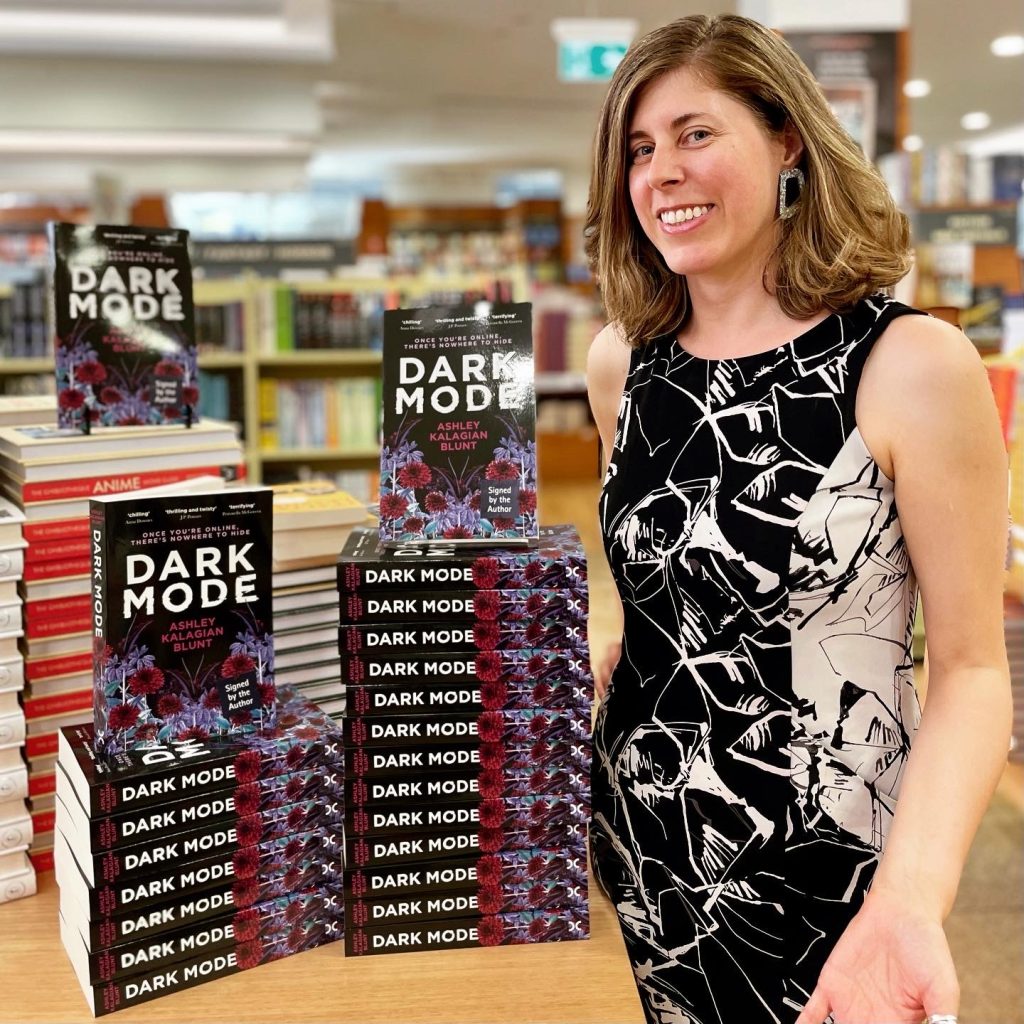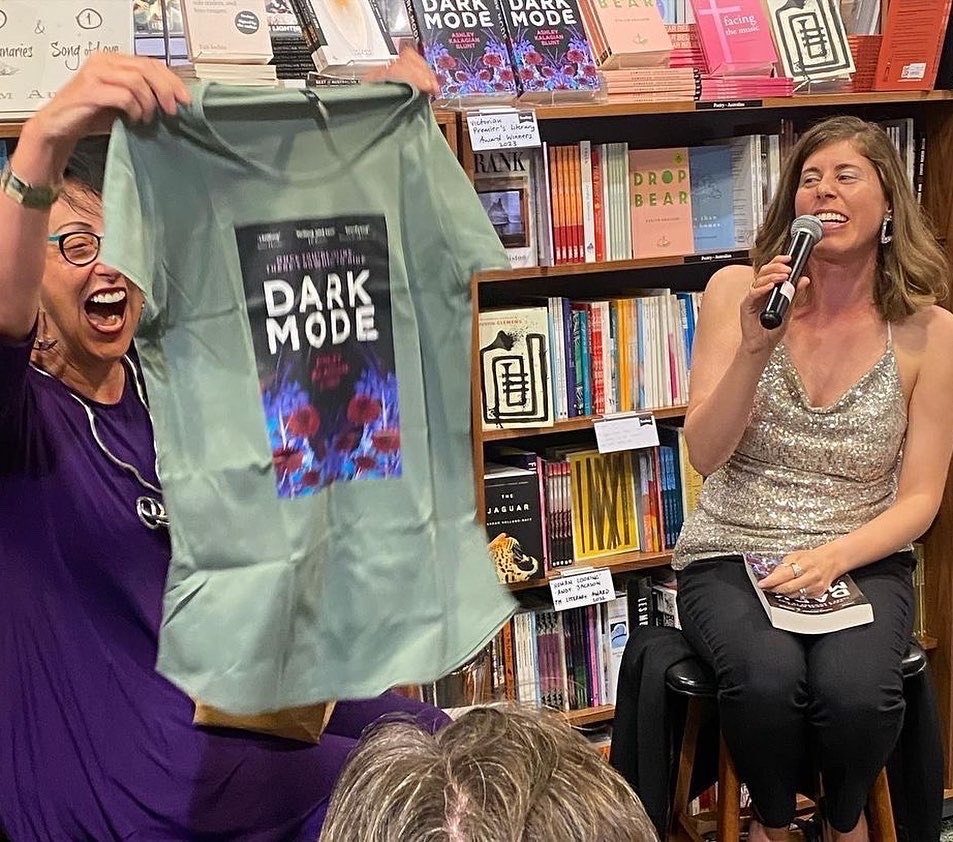I shouldn’t be writing this. I’ve had three viruses in recent weeks, and each have decimated me. The latest is lingering. Compounded with the chronic fatigue syndrome I’ve lived with since 2017, the effect is physical exhaustion that makes it hard to sit upright, and cognitive fog that blurs my thoughts. The psychological impact is catastrophic overwhelm.
I should have emailed Lee to say I’m too unwell to write about maintaining a creative practice while living with chronic illness. But this is part of how I’ve maintained a creative practice – I’m too stubborn to relinquish it. Because I can do this, I can write this article, even though the unexpected volley of viruses means I’ve left it later than I normally would. (Tip one: start as early as possible, pad your calendar with buffer time.)
The vision of a stable routine – in writing and other important to me activities – is the mirage I keep striving toward. (Is this tip two? Allow for optimism, between bouts of catastrophic overwhelm?) It shimmers, so close I can touch it. Two years ago, I had a 68-day streak of daily walks. Sixty-eight days! I thought that was the turning point. From there on, it would be sixty-eight-day streaks, one-hundred-day streaks, until even the idea of carefully monitoring my capacity faded, and I went back to reliable, stable life I’d lived before.
I’ve managed one forty-eight-day streak since, last year, and a thirty-sixer this year. Otherwise, my streaks remain mostly single digits, barely worthy of the term. (Tip three: it’s human nature to search for patterns, even where they don’t exist.)

Managing a creative practice as an able-bodied person is challenging enough. I know. I did it for years before the chronic fatigue rewired my capacity, and in doing so, my identity. Managing a creative practice through chronic illness is, like every other aspect of life with illness, especially tough. But also possibly more essential.
When I was well, getting published and identified as a ‘successful writer’ was direly important. I did end up getting published, and that recognition has certainly helped me cope with the way the chronic fatigue seems intent on erasing me from my own life. But it’s worthwhile noting the way the creative work itself took on more meaning when I was sick. Perhaps it’s because when I was well, doing creative work, especially at a stage where I was developing my skills, meant taking time away from tangible, ‘productive’ or enjoyable pursuits, such as making money, exercising, or seeing friends and family. As a healthy person, it sometimes felt foolish to spend time on writing that seemed to be going nowhere.
Getting sick meant losing those productive pursuits. I barely worked, left the house or had energy to interact with others. So the writing itself became more important, because it offered a temporary escape from the omnipresent reality of the illness. It was an opportunity to be the person I had been before the illness: an unpublished writer, yes, but also someone who was writing not only for the hope of publication and recognition, but also for the love of engaging with words and ideas.
So illness changed my relationship to my creativity, in a positive way. I’m grateful for that. But also, for fuck’s sake, I’ve been unwell for seven years, and my situation has changed. I now have the opportunity to be a full-time writer, do it as a career – if only I were well enough to do anything full time. Everything I’ve worked so hard for, everything I was too scared to even let myself dream of, is within grasp. But the illness, though not as acute as it first was, is a very real obstacle. I can only do so much, and part of the problem is that I don’t know how much that is. Or rather, it changes day to day and month to month, and often I’m committing myself to work months in advance.
I don’t want to imply that I push myself past the limits of my health, or that I work to my detriment. When my body demands rest, I rest. Often this is non-negotiable, so the point is moot. What’s especially tricky is determining how much rest I need on the days that I am capable of work. (Tip four: accept the rarity of clear cut answers.) I err on the side of doing less, of early nights, of white space on the calendar.
And still, at times, like right now, that’s not enough.

Things get desperate. I sit at my desk and cry. I don’t have anyone to talk to because my next psychologist appointment is weeks away, and my friends are busy with their lives and have heard all this before, and my husband is sick of hearing it (can you blame him, after seven years?) and am I really going to call Lifeline because I’m too exhausted to do the piddling amount of work I need to accomplish this week? (Tip five: ‘You can call Lifeline. That’s what they’re there for.’ A direct quote from my psychologist.)
And look, here, I’ve done it. It’s written. I didn’t have to inconvenience Lee by backing out of my commitment last-minute (though she would have been exceptionally understanding. Tip six: give people a chance to be kind; most will take it). If the situation worsened today, I might have. Instead it lifted, just enough. This is how it happens. It feels impossible, it’s much more difficult than it should be. Then, in the midst of that, the work gets done. It’s not always as polished as I’d like, but it happens.
People often look at my social media and say, ‘You’re doing so much!’ But I see the absence of all the things I would be doing if I were well. The work is harder than it should be, and mired in grief. It helps to have friends in similar situations, who understand without the impossibility of explaining. It helps to know that aloneness is relative, especially when I feel utterly alone and forgotten, a living corpse. When I can’t be present for my friends, or travel to the places I long to visit, or stop crying, or reliably leave my apartment for a daily walk. But my writing tells the world – and me – I’m still here.
Ashley Kalagian Blunt is the bestselling author of Dark Mode, an internationally published psychological thriller. Her earlier books are How to Be Australian, a memoir, and My Name Is Revenge, collected fiction and essays, which was a finalist in the 2018 Carmel Bird Digital Literary Award. Her writing appears in the Sydney Morning Herald, Overland, Griffith Review, Sydney Review of Books, Australian Book Review and more. Ashley co-hosts James and Ashley Stay at Home, a podcast about writing, creativity and health, and teaches creative writing. Originally from Canada, she has lived and worked in South Korea, Peru and Mexico.
Ashley, this resonated with me so deeply. As you know I’ve been struggling with an undiagnosed illness since 23 July and it has turned my life — and yes, my sense of self- upside down. Thank you for writing this.
Beautiful heartfelt writing. And, you’re so right, Ashley. Take what each day offers. In many ways you’re achieving more than most. You know the value of time and energy and friendship and love. Pat yourself on the back every day. All the best for your future.
Yes! Thank you for writing about this, Ashley. I don’t even have a diagnosis because none of the GPs I’ve seen since 2008 when my symptoms began have wanted to use the term ME/CFS and only one said I might have ‘fibromyalgia’. Whatever the name for it, fatigue/pain/malaise take me on a rollercoaster ride most days. The words ‘I don’t know how much that is [that you can do]’ really struck home. It’s difficult to get the energy some days to think about writing or even reading, and it varies from day to day. Congratulations to you for what you have accomplished.
Isn’t she incredible? Such wisdom from such shit. Such clarity from a private world no on else can possibly imagine let alone understand. Such bravery when giving up might seem the logical response. When it seems impossible, it’s not. Thank you Ashley. Your words are a gift and defiant declaration against the forces that would try to diminish you.
Thank you, Ashley, thank you deeply for your honesty, humility and humanity. Your words are a powerful manifesto for the creative soul and mind. Solitude is such a different beast to loneliness, and I often think that as writers we craft such ephemeral things, only to be made tangible by the mark those words leave on others – and you’re not alone; this will leave a lasting impression on anyone who has the privilege of reading them. I am a writer living with FND, or functional neurological disorder, and on days where I need to stay home, but crave the company of other creative minds, I put on an episode of your podcast and listen with glee to you and James. In so many ways, reading this has made me come to understand that the stories we tell are not just the final product we find on shelves at a bookshop, but the collective process of defining and remaking ourselves through the characters whose lives we inhabit, and this world is all the richer for the words you have shared with us today. Thank you.
Reading your wise words at 4am – with roving pain, ravaging fever, and always the worry of what is committed to and what is hoped for. Thank you for articulating this so very well – alternating between the rest and retreat demanded by illness and the struggle to create and show up despite. You are a warrior at your keyboard. Thank you.
Thank you, Ashley, and congratulations on your bravery and wisdom. As a psychologist/writer, I applaud you for your insight and grit and acceptance. And, of course, for your heartfelt prose.